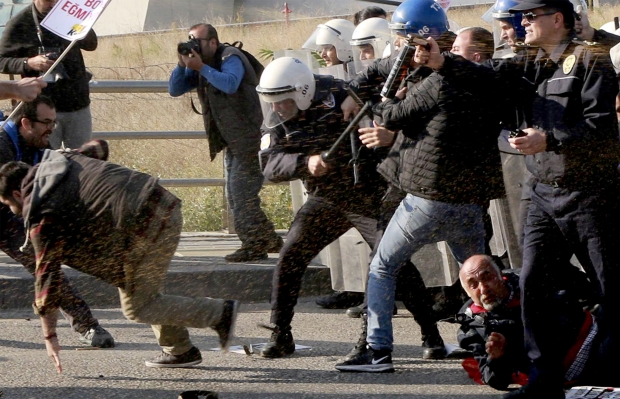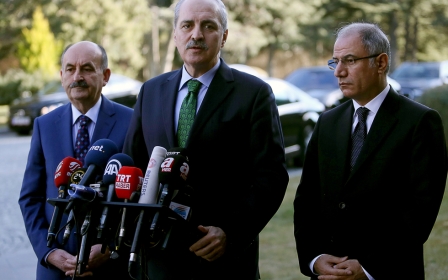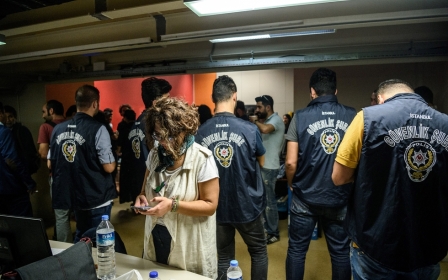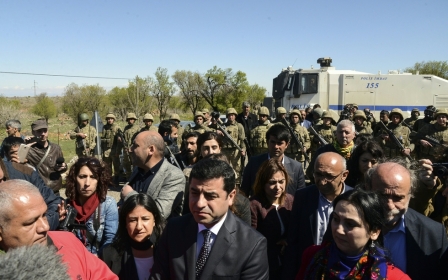Turkish police clash with pro-Kurd crowd on bomb anniversary
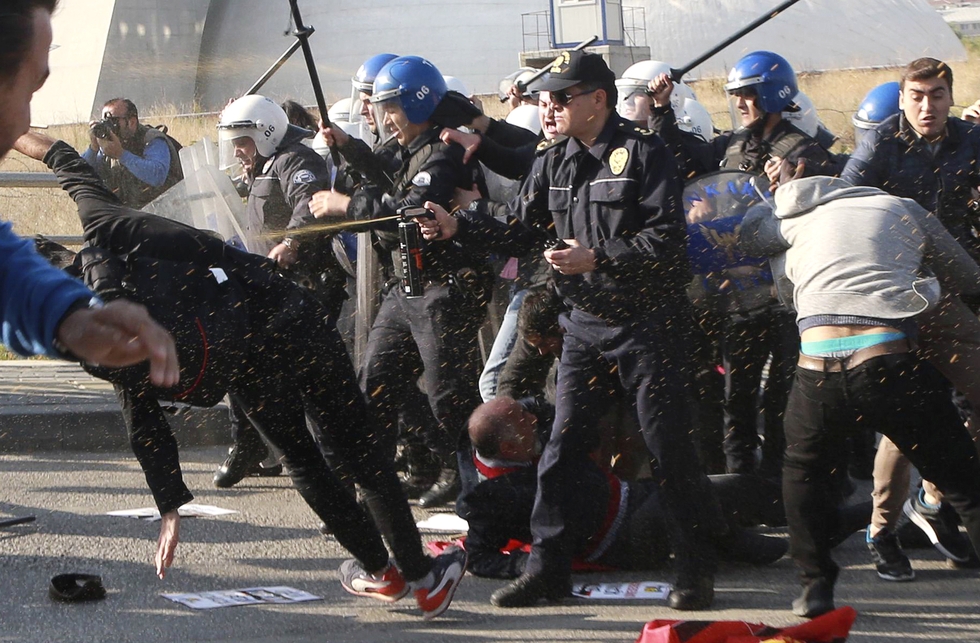
Police in Ankara on Monday used tear gas and plastic bullets to prevent pro-Kurdish activists from holding a protest to mark the first anniversary of the worst attack in Turkey's modern history.
One hundred and three people were killed on October 10, 2015 when suicide bombers said to be linked to Islamic State (IS) blew themselves up in a crowd of pro-Kurdish peace activists planning to hold a rally outside Ankara's main train station.
Nearly 500 people were wounded, some of whom are still receiving treatment.
A crowd of more than 150 chanted "murderous state" as a line of police and water cannon trucks refused to let them through to the site of the attack to commemorate the anniversary, an AFP correspondent said.
Hundreds of people carrying placards and flags from different associations were also stopped by a group of at least 20 police officers carrying anti-riot shields.
Police then used tear gas and plastic bullets against the group, some of whom threw bottles and stones. Some were hit by police truncheons as they scattered, covering their mouths to limit the effects of the tear gas.
Demonstrators said relatives of the victims - including parents and children - had been allowed through to pay their respects at the site of the attack before the commemoration began.
But some families mourned their loved ones away from the station, telling AFP they did not want to split up from each other as police only allowed close relatives through.
When the moment came to pause for silence at the precise time of the attack at 10.04am, the crowd burst into applause, vowing that they would not let it ever be forgotten.
Two leaders of the pro-Kurdish People's Democratic Party (HDP), Figen Yuksekdag and Selahattin Demirtas, were among the mourners, hugging families who lost loved ones.
There has been deep frustration among relatives over the slowness of the investigation and no-one has ever been brought to justice over the attack.
Haldun Aciksozlu, who was part of the demonstration waiting by the police line, said people were angry because they wanted to be together on this sad day.
"Even when they lose people, the state won't let them be together. We were only going to read poems," he told AFP, adding that a friend of his was among the victims.
He said while tens of thousands had been arrested over suspected links to the movement led by Islamic preacher Fethullah Gulen, accused of ordering the July 15 failed coup, not a single person had yet been put on trial over the Ankara plot.
Oncur, who had come from Istanbul and did not wish to give her surname, said "there has been no justice".
According to reports in June, Ankara prosecutors indicted 36 jihadist suspects over the attack, 10 of whom were in custody at the time. However there has been no further information on their status since then and no trial has begun.
Less than an hour after scuffles first began, the police successfully dispersed the crowd, some of whom threw stones, using tear gas and plastic bullets.
Politicians from the Republican People's Party (CHP) were among those affected by tear gas, an AFP photographer said.
More than 100 walked through Kizilay Square, one of the city's main shopping areas, shouting "the murderous state will be brought to account" and saying they were "standing shoulder to shoulder against fascism".
They were later joined by hundreds of people including a group carrying pictures and names of those killed in the twin bombings.
The attack came at a time of considerable social tension in Turkey as the government wages a crackdown against the outlawed Kurdistan Workers' Party (PKK) and its supporters.
On Sunday, 10 soldiers and eight civilians were killed in a truck bombing by PKK militants in the southeastern province of Hakkari, the government said, one of the deadliest attacks this year on security forces.
New MEE newsletter: Jerusalem Dispatch
Sign up to get the latest insights and analysis on Israel-Palestine, alongside Turkey Unpacked and other MEE newsletters
Middle East Eye delivers independent and unrivalled coverage and analysis of the Middle East, North Africa and beyond. To learn more about republishing this content and the associated fees, please fill out this form. More about MEE can be found here.


